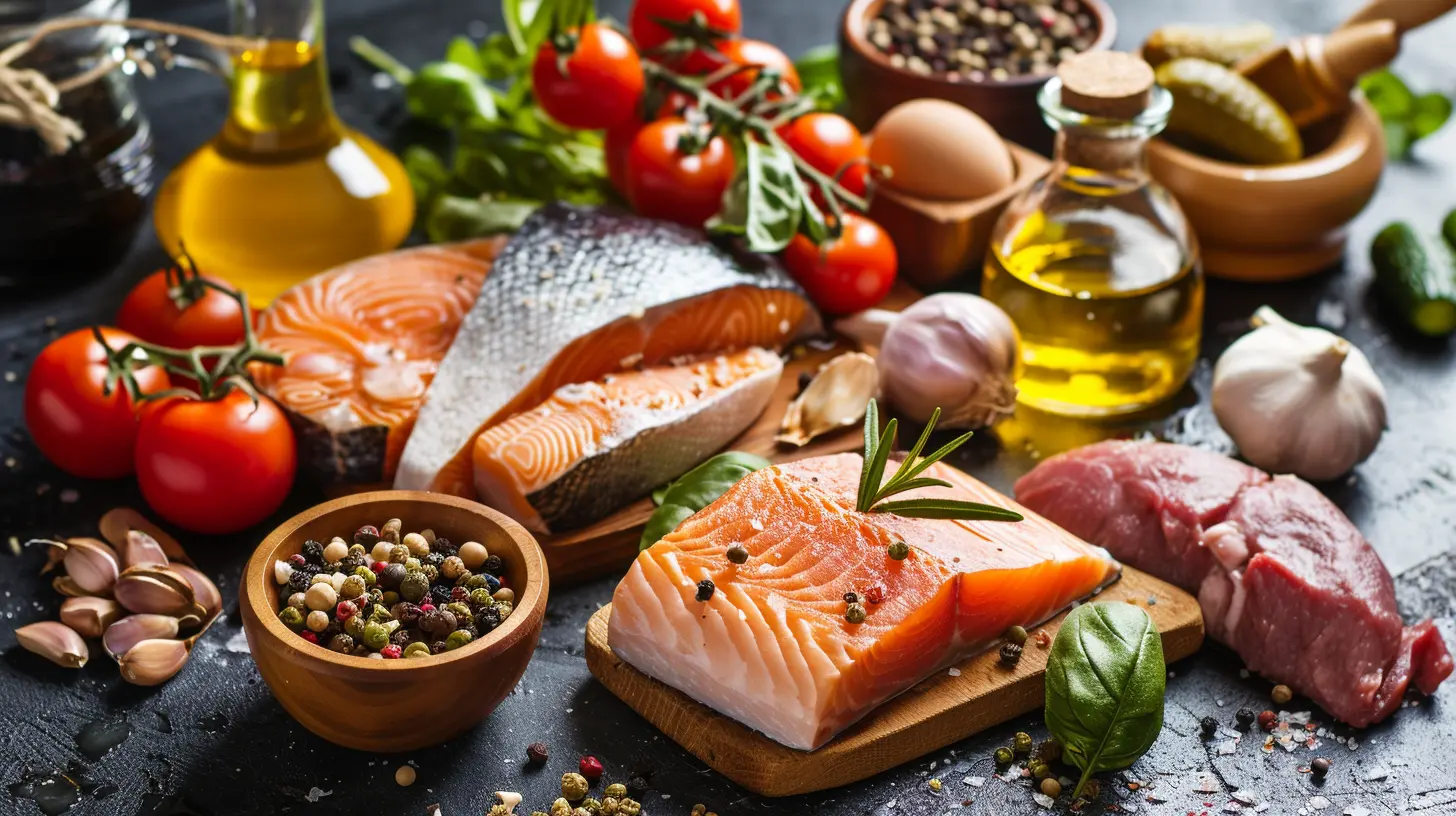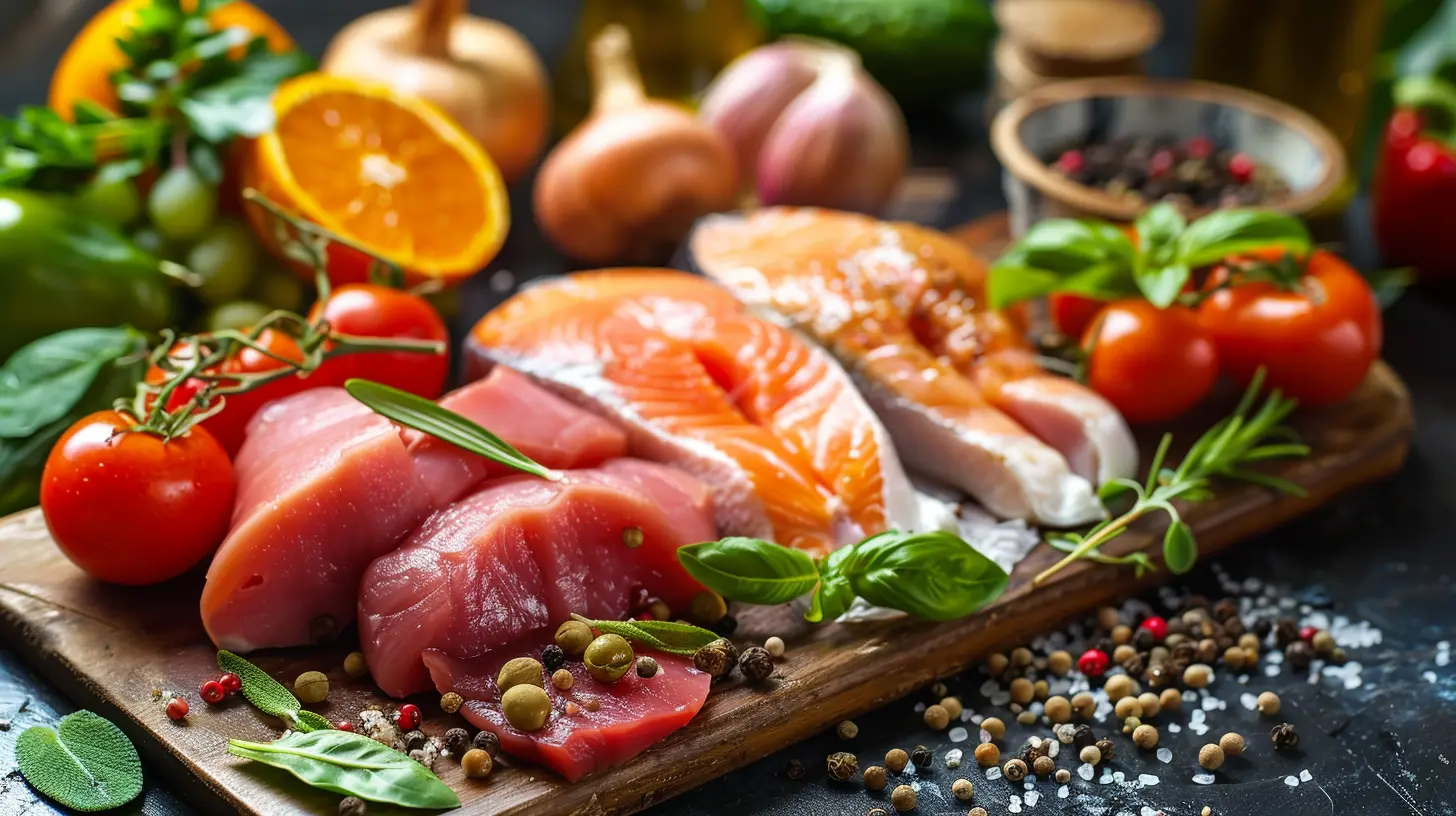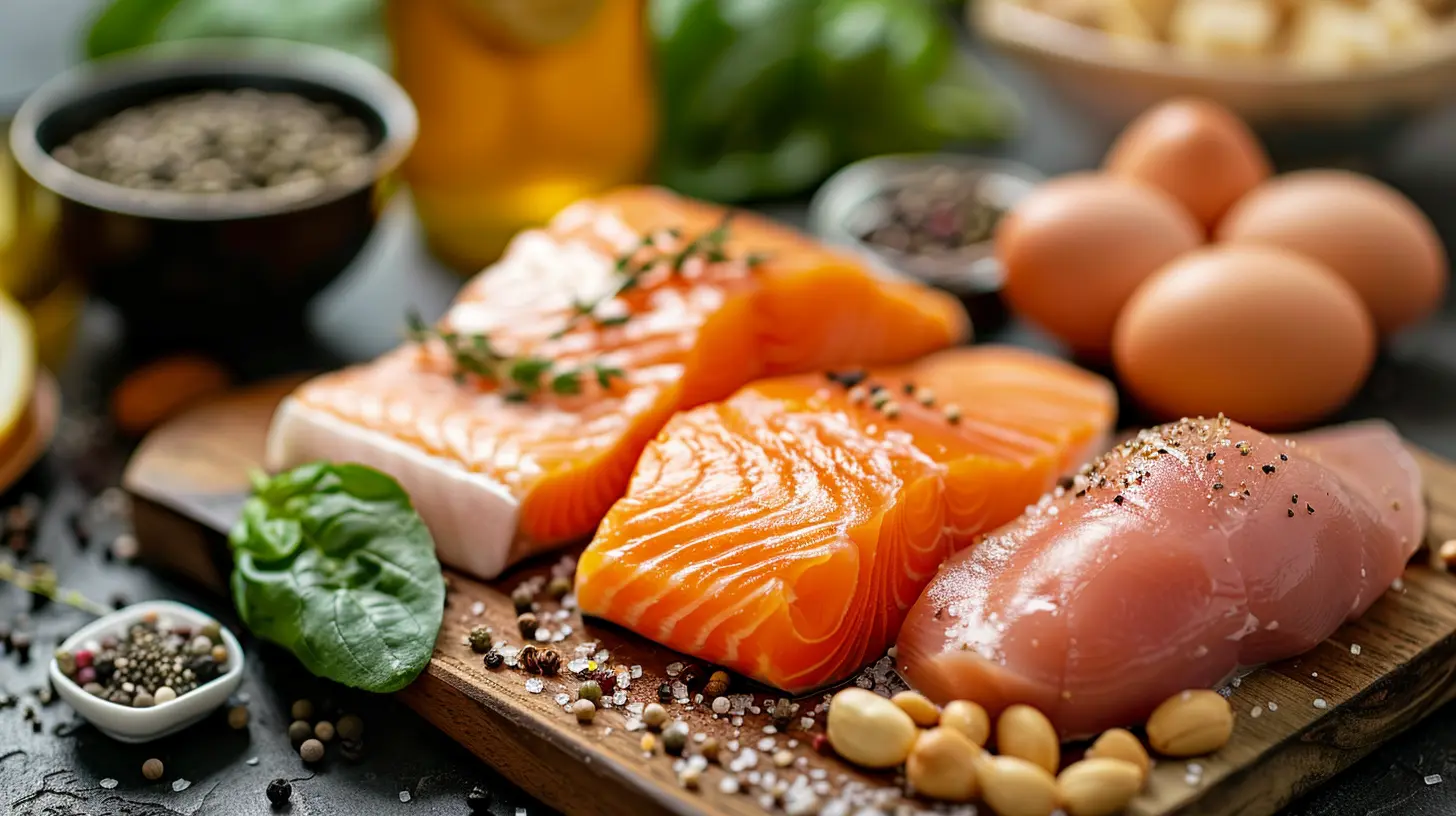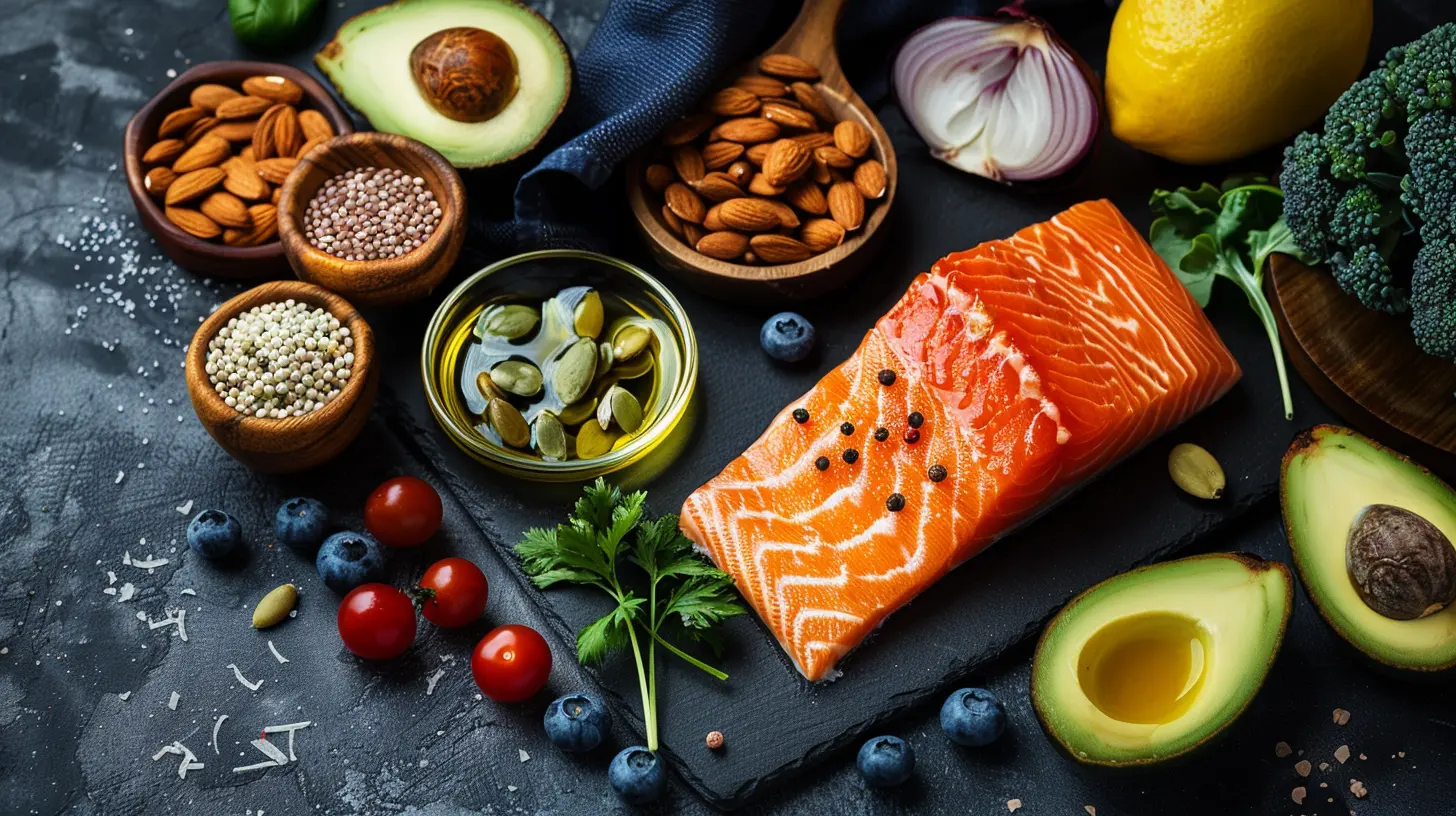Debunking Myths About Ketosis and Weight Loss
22 July 2025
Let’s face it: dieting can be confusing. With all the buzzwords floating around — keto, low-carb, intermittent fasting, macros — it’s no wonder most people don’t know where to start. And somewhere in the whirlwind of diet trends, ketosis has taken center stage… but not without its share of myths and misunderstandings.
If you’ve ever been curious about the ketogenic diet or wondered whether ketosis actually helps with weight loss, you’ve come to the right place. This article is all about debunking myths surrounding ketosis and weight loss, breaking things down in plain English — no PhD in nutrition required.
What Is Ketosis, Really?
Before we get into myth-busting, let’s briefly talk about what ketosis actually is.Ketosis is a natural metabolic state where your body, deprived of enough carbohydrates (your usual source of energy), starts burning fat for fuel instead. This process produces molecules called ketones, which your body uses as an alternative energy source.
That’s the science-y explanation. In simple terms? When carbs are scarce, your body flips the switch and starts using fat as its go-to fuel. And that’s where the whole “weight loss” connection comes in.
Myth #1: Ketosis = Instant Fat Burn
Let’s start with one of the biggest myths out there.🚫 The Reality: It Doesn’t Work Like a Magic Switch
Some folks believe that just by entering ketosis, you’ll automatically become a fat-burning machine. The truth? It’s not that simple.Getting into ketosis doesn’t guarantee weight loss. Sure, your body is burning fat for fuel instead of carbs, but if you’re still eating more calories than you burn – keto or not – you won’t lose weight. Weight loss still boils down to a calorie deficit.
Let’s use an analogy: imagine switching your car from gasoline to electric. You’ve changed the fuel source, but if you leave it idling in the driveway all day, you’re not going anywhere. Same goes for ketosis — switching fuel types doesn’t mean the car (your body) is automatically burning through fat unless you're moving (aka creating a deficit).
Myth #2: You Can Eat Unlimited Fat on Keto
Ah yes, the butter-in-everything trend. Keto dieters often go heavy on fatty foods, thinking they’ve found a secret loophole – eat all the bacon and still lose weight?🍳 The Reality: Calories Still Count
Let’s be real: fat is energy-dense. One gram of fat has 9 calories vs. 4 calories in one gram of carbs or protein. Load up on too much fat, and those calories can add up fast — even if you’re in ketosis.So yes, healthy fats like avocado, olive oil, grass-fed butter, and nuts are encouraged on keto, but the “more is better” mentality? Not so much. It's about balance and choosing fats strategically, not drowning everything in melted cheese.
Myth #3: Keto Is the Same as Low-Carb
People often toss around “keto” and “low-carb” like they’re interchangeable.🍞 The Reality: All Keto Diets Are Low-Carb — But Not All Low-Carb Diets Are Keto
Think of it this way: all chihuahuas are dogs, but not all dogs are chihuahuas.Keto is a very specific type of low-carb diet, where carbs are typically limited to 20-50 grams per day to force the body into ketosis. Other low-carb diets — like Paleo or Atkins — may allow way more flexibility in carb intake and don’t necessarily push you into ketosis.
So if someone says they're eating low-carb, it doesn’t automatically mean they’re in ketosis.
Myth #4: You Lose Only Water Weight on Keto
You might’ve heard that all those first few pounds you lose on keto is just shed water weight, not real fat.💧 The Reality: Yes, You Lose Water—But Fat Loss Follows
Here’s the deal: when you cut carbs drastically, your insulin levels drop, and your body starts shedding glycogen (stored carbs). Glycogen holds water — like, a lot of it. So yes, the initial rapid weight loss in week one or two? Largely water. But that doesn’t mean keto stops working after that.Once your body settles into ketosis, it starts breaking down fat into ketones to fuel your energy needs. If you're eating fewer calories than you're burning, real fat loss kicks in.
So yes, the water weight comes off first — but that’s just the warm-up.
Myth #5: Ketosis Is Dangerous
This one creates a lot of fear, especially when people confuse ketosis with ketoacidosis — a completely different and dangerous condition that typically affects type 1 diabetics.⚠️ The Reality: For Most Healthy People, Ketosis Is Safe
Ketoacidosis is a life-threatening medical condition with dangerously high blood sugar and ketone levels. It’s not something someone on a normal keto diet will just “accidentally” fall into.Nutritional ketosis — the kind you enter on a keto diet — is a natural metabolic state. Your ancestors experienced it all the time when food was scarce. Your body is designed to flip between fuel sources depending on availability.
That said, if you have underlying health conditions (like diabetes or kidney issues), always consult a doctor before trying any extreme diet.
Myth #6: Ketosis Means You Can’t Eat Any Carbs Ever
Cue the panic: "I have to give up bread FOREVER?!?!"🥖 The Reality: Keto Is Low-Carb, Not No-Carb
Keto is strict, but it’s not zero-carb. Most keto diets allow for 20-50 grams of net carbs per day. That means you can still have small portions of low-carb veggies, berries, and even certain condiments.And here’s the kicker — many keto eaters cycle in and out of ketosis, adding in more carbs during certain days or weeks (known as cyclical or targeted keto).
You’re not selling your soul to bacon and broccoli forever. There’s wiggle room — if you plan it right.
Myth #7: You Can’t Exercise While in Ketosis
This myth just won’t die. People assume that without carbs, you can’t have energy to work out.🏋️ The Reality: Your Body Adapts — And Can Thrive
It’s true that during those first couple weeks on keto — what folks call the “keto flu” — your performance might take a hit. Your body is adapting to the new fuel source, and that isn’t always smooth.But once adapted, many people report increased endurance, better fat oxidation, and even improved recovery. That’s especially true for lower-intensity workouts like walking, cycling, yoga, and steady-state cardio.
High-intensity training? That’s a bit trickier. Some athletes use “targeted keto,” adding a small dose of carbs before a workout to fuel those intense sessions. You don’t have to sacrifice movement to stay in ketosis — your body’s smarter than you think.
Myth #8: Keto Is All Bacon and Butter
Thanks, internet. The #Keto hashtag has made it look like all you eat is meat, cheese, and more meat.🥑 The Reality: A Well-Formulated Keto Diet Is Full of Nutrient-Dense Foods
Trust me — keto isn’t just bacon-wrapped everything. A good keto diet is rich in:- Leafy greens (spinach, kale, arugula)
- Non-starchy veggies (zucchini, cauliflower, broccoli)
- Healthy fats (avocado, olives, coconut oil)
- Proteins (eggs, fish, pasture-raised meats)
- Seeds and nuts
- Berries (in moderation)
Keto can be very healthy — or very junky — depending on how you do it. It’s not an excuse to live on pepperoni sticks and whipped cream.
Myth #9: Keto Works for Everyone
Let’s keep it 100 — no diet is one-size-fits-all, and that includes keto.🙅♀️ The Reality: It Depends on Your Body, Goals, and Lifestyle
Some people thrive on keto. They feel energetic, focused, and drop weight like it’s nothing. Others feel sluggish, constipated, and sick of calculating macros.Keto requires discipline, commitment, and often a big change in eating habits. If you can’t see yourself sticking to it long-term, it might not be the best fit.
Don’t jump on the keto bandwagon just because it worked for your cousin’s boyfriend’s sister. Your body, your rules.
Final Thoughts: Separating Fact from Fiction
At the end of the day, ketosis isn’t magic — but it’s not a hoax either. Like any diet or lifestyle shift, it works when done mindfully and with the right information.Weight loss isn’t about trends — it’s about sustainability. Keto might help you get there, but only if it fits you.
So, before you go tossing your bread and buying bacon in bulk, ask yourself:
- Can I commit to this long-term?
- Do I understand how this works?
- Am I buying into the hype, or making an informed choice?
Because when it comes to health, wisdom beats trends every time.
all images in this post were generated using AI tools
Category:
Keto DietAuthor:

Eileen Wood
Discussion
rate this article
1 comments
Soliel Richardson
Great insights! Busting myths helps everyone understand ketosis better—thanks for sharing!
August 14, 2025 at 3:34 AM

Eileen Wood
Thank you for your kind words! I'm glad you found the insights helpful.


